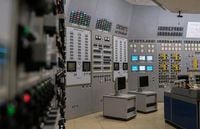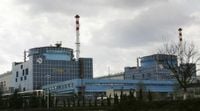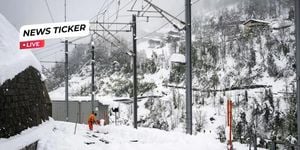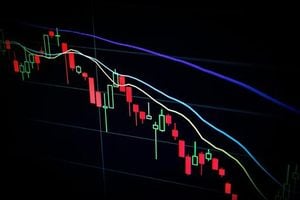SOFIA - In a surprising turn of events, Bulgaria has decided against selling its two unused Russian nuclear reactors to Ukraine, a reversal influenced by the pro-Russian Bulgarian Socialist Party (BSP). Atanas Zafirov, the BSP leader and deputy prime minister, emphasized the significance of these reactors for Bulgaria's energy security and economic independence, stating, "We were adamant from the start that these reactors are not for sale. They are a key asset for Bulgaria."
The two Russian VVER-1000 reactors, along with four steam generators and four circulation pumps, have been in storage near the Danube River since Bulgaria abandoned plans to construct the Belene nuclear power plant. Instead, Bulgarian authorities have opted to build two new nuclear units at Kozloduy Nuclear Power Plant (NPP) using U.S.-designed AP1000 technology from Westinghouse, with South Korea's Hyundai selected as the builder.
Ukraine had sought to purchase these reactors to complete its Khmelnytskyi nuclear power plant, which is compatible with the same reactor type. The proposed deal was valued at just over €600 million ($682 million), and Ukraine's parliament had already passed legislation approving the acquisition.
In February 2025, Boyko Borissov, leader of the GERB party and a significant figure in Bulgarian politics, confirmed the sale of the reactors. He had initially predicted that the BSP would not obstruct the transaction, promoting it as a financial boon for Bulgaria, a nation unable to utilize the reactors itself. The proceeds were expected to bolster the state budget.
However, on April 15, 2025, Zafirov announced a unified government stance against the sale. "We have a collective decision regarding the fate of the two reactors—they will not be sold. This is a decision supported by all coalition partners. I thank our partners for standing united behind this strategic choice," he declared.
Despite the abandonment of the Belene project, which cost over €1 billion with no tangible results, Zafirov asserted that Bulgaria has the expertise and a prepared site to construct a second nuclear power plant. This claim comes as Ukraine grapples with energy security issues amid ongoing conflicts.
Ukrainian officials were reportedly caught off guard by Bulgaria's reversal, learning about the decision through media reports. A source at Ukraine's energy ministry commented, "We are seeking clarification through diplomatic channels." This unexpected setback may delay Ukraine's plans to expand its nuclear capacity, which is critical for meeting the country's growing energy demands.
Maria Tsvetanova, an energy consultant in Kyiv, noted, "Ukraine needs these reactors to meet growing energy demands. Finding alternative suppliers will be challenging in the current market." Nuclear power plays a pivotal role in Ukraine's energy landscape, covering more than half of the country's electricity consumption.
The ongoing Russian missile and drone attacks have severely damaged Ukraine's thermal and hydroelectric generating capacity, leading to periods of emergency shutdowns. The Khmelnytskyi plant is one of three remaining operational nuclear stations in Ukraine-controlled territories and is crucial for the country's energy resilience.
As Ukraine aims to expand the Khmelnytskyi plant to compensate for the loss of the Zaporizhzhia Nuclear Power Plant, currently under Russian occupation, the decision by Bulgaria not to sell the reactors adds another layer of complexity to the region's energy dynamics.
In summary, Bulgaria's unexpected decision not to sell its nuclear reactors to Ukraine highlights the intricate interplay of energy security, political alliances, and economic considerations in Eastern Europe. As both nations navigate these challenges, the implications of this reversal will likely resonate throughout the region for some time.





